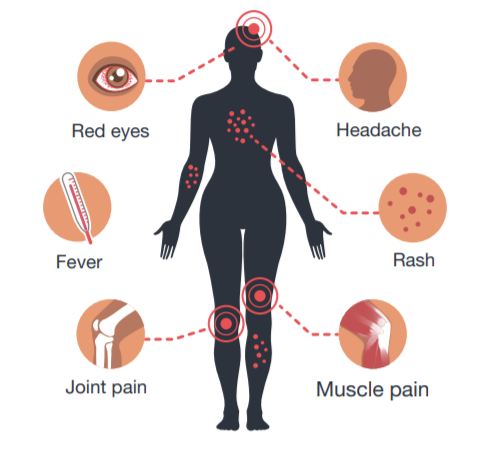Zika
What is Zika?
Zika fever is a mild febrile illness caused by a mosquito-borne virus similar to those that cause dengue and West Nile virus infection. It has been identified in several countries in Central and South America, Mexico, and the Caribbean since 2015. Outbreaks have previously been reported in Africa, Southeast Asia, and the Pacific Islands. Cases of Zika fever have been reported in travelers returning to the United States. Local transmission has also been reported in Puerto Rico and South Florida.
Local Transmission
There are no areas of ongoing, active transmission of Zika by mosquitoes in Florida.
The Florida Department of Health continues to closely monitor the status of Zika virus in Florida and take action to keep Floridians, especially pregnant women, safe. If the department identifies any areas of concern, the public and the media will be notified.
The Florida Department of Health advises residents and visitors to Miami-Dade County to remain vigilant about mosquito bite protection by draining all sources of standing water to keep mosquitoes from breeding and by wearing bug repellent.
Symptoms and Treatment
Only about 1 in 5 people infected with Zika virus are symptomatic. Zika fever is a mild illness. Severe disease requiring hospitalization is uncommon. Signs and symptoms of Zika fever may include: acute onset of low-grade fever, rash, joint pain, conjunctivitis (reddening of the eye), body aches, and headache. Treatment is symptomatic since there is no specific treatment against the virus. Illness typically resolves within a week.

Zika infection during pregnancy can cause microcephaly and other birth defects. Microcephaly is a birth defect in which a baby’s head is smaller than expected when compared to babies of the same sex and age. There have also been increased reports of Guillain-Barré syndrome, an uncommon sickness of the nervous system, in areas affected by Zika.
How Zika Spreads
Zika fever is acquired through the bite of an infected mosquito, including the same mosquitoes that can transmit dengue and chikungunya. Perinatal and sexual transmission have also been reported.
CDC - Effective condom use to prevent sexual transmission
Mosquito Control and Bite prevention
How to Prevent Zika
There is no vaccine to prevent Zika. The best way to prevent disease spread by mosquitoes is to protect yourself and your family from mosquito bites and from getting Zika through sex. Here’s how:
- Wear long-sleeved shirts and long pants
- Stay in places with air conditioning and window and door screens to keep mosquitoes outside
- Take steps to control mosquitoes inside and outside your home
- Treat your clothing and gear with permethrin or buy pre-treated items
- Use Environmental Protection Agency (EPA)-registered insect repellent
- Mosquito netting can be used to cover babies younger than 2 months old in carriers, strollers, or cribs to protect them from mosquito bites
- Sleep under a mosquito bed net if air conditioned or screened rooms are not available or if sleeping outdoors
- Prevent sexual transmission of Zika by using condoms or not having sex
Additional Resources
Zika Virus Information Hotline (770) 488-7100
Florida Department of Health Miami-Dade and Zika Virus